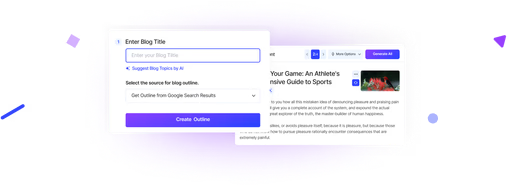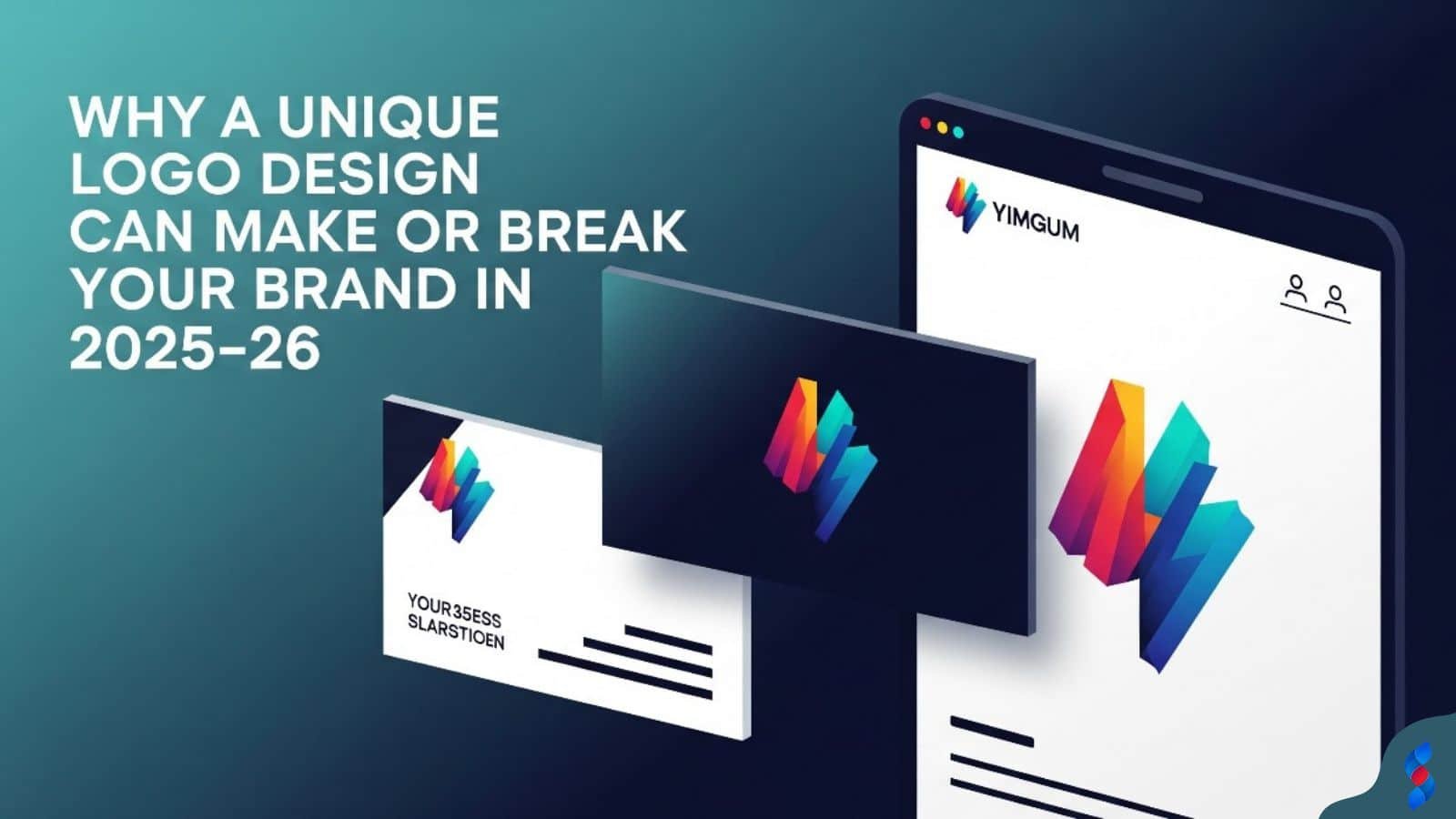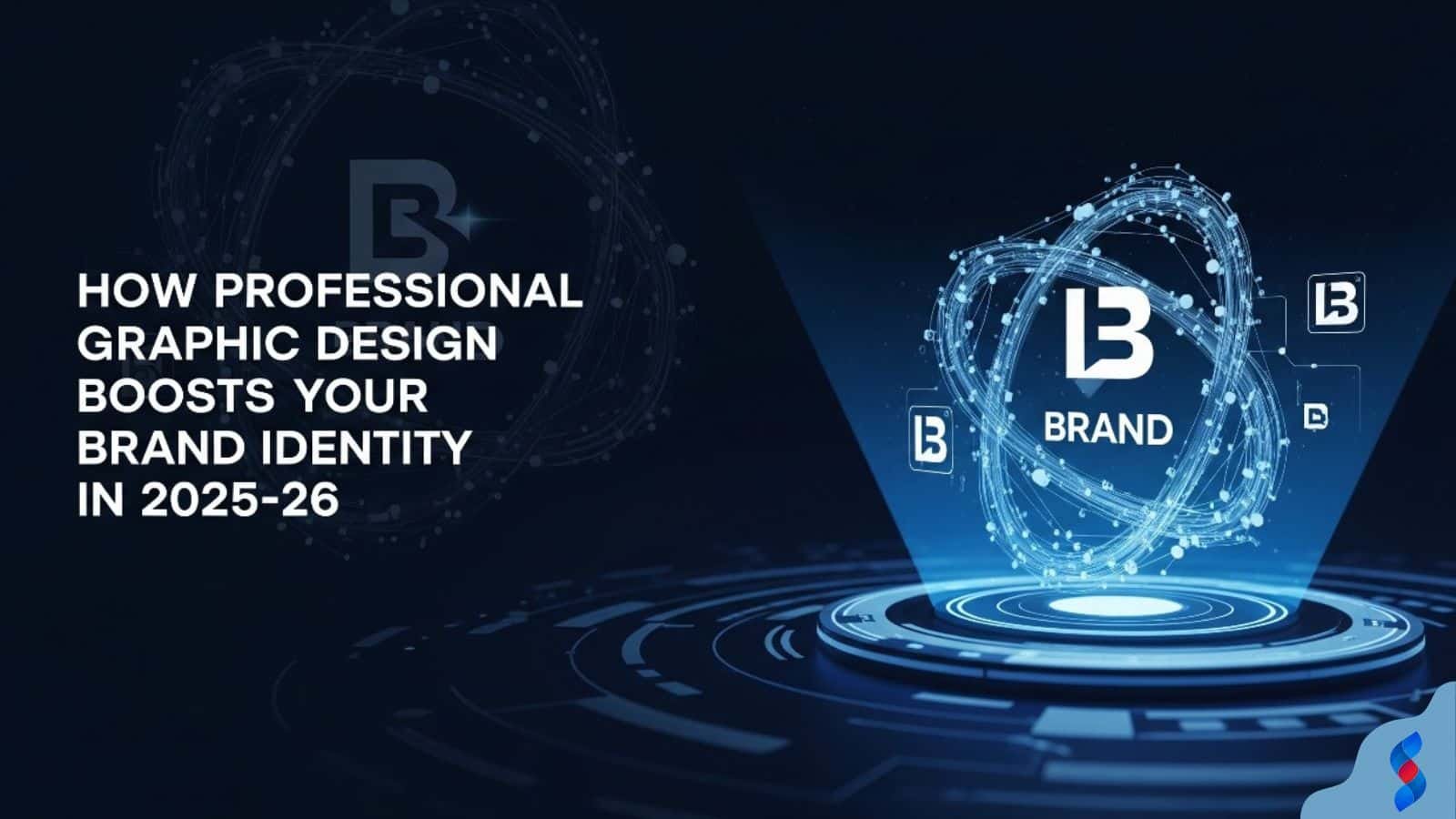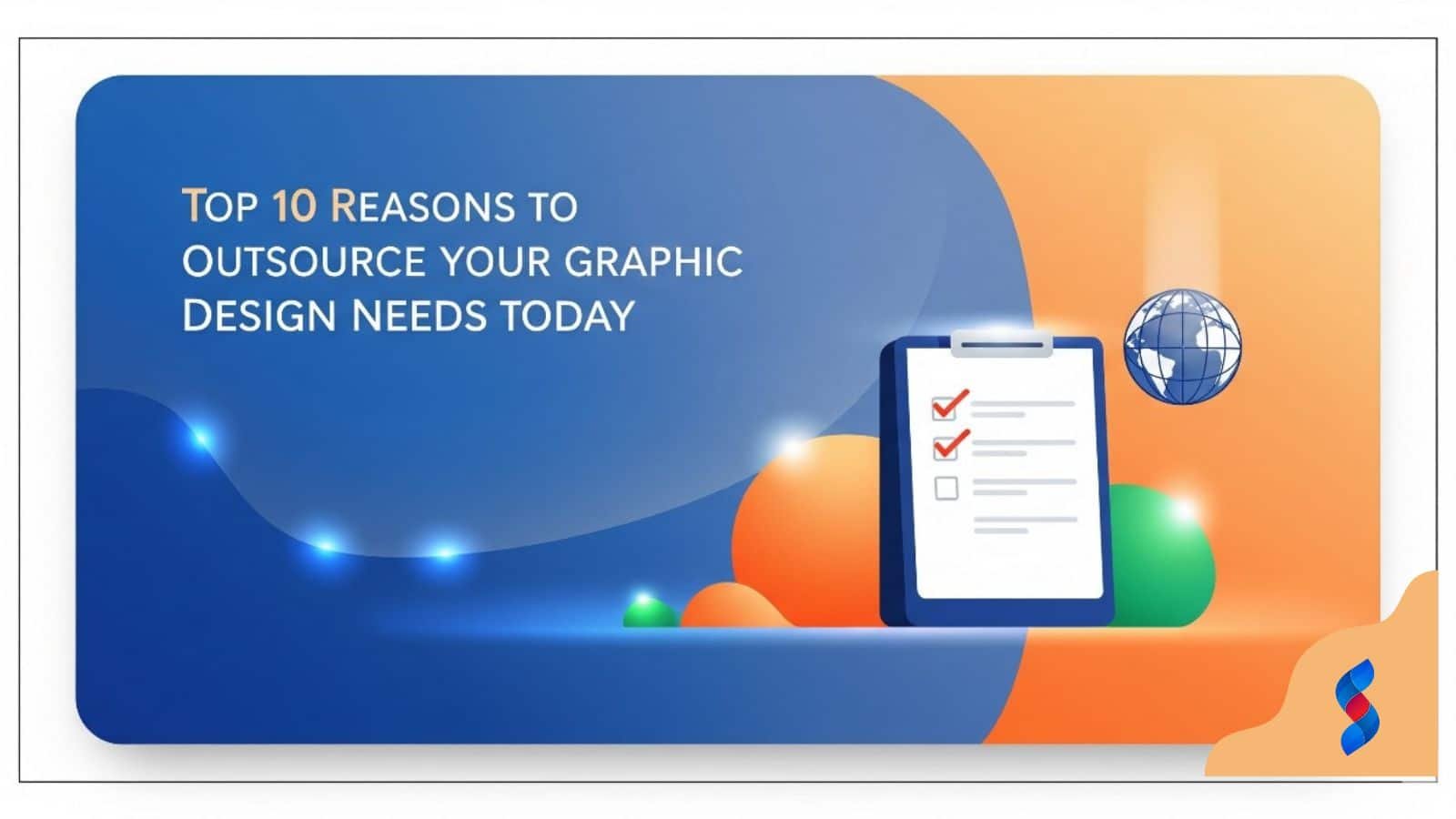Why a Unique Logo Design Can Make or Break Your Brand in 2025–26
Need help? Call us:
+92 320 1516 585
- Web Design And Development
- Graphic Designing
- Search Engine Optimization
- Web Hosting
- Digital Marketing
- CRO Services
- Brand Development
- Social Media Marketing
- PPC Marketing
- Content Marketing
- ERP Solutions
- App Development
- Game Development
- Printing Services
- Video Production
- Artificial Intelligence
- Data Entry
- Theme And Plugin Development
- Product Photography
- Software Development
- App Development
- Artificial Intelligence
- Brand Development
- Content Marketing
- CRO Services
- Custom Theme And Plugin Development
- Data Entry
- Digital Marketing
- ERP Solutions
- Game Development
- Graphics Designing
- PPC Marketing
- Printing Services
- Product Photography
- SEO
- Social Media Marketing
- Software Development
- Unique Category
- Video Production
- Web Design & Development
- Web Hosting
Ultimate Guide to Unlocking the Best Graphic Design Skills for an Amazing WordPress Website in 2025
- By Khurram Virk
Graphic design skills are essential for creating visually stunning and effective WordPress websites. In today’s digital landscape, a website’s aesthetic appeal significantly impacts user engagement and overall success. This comprehensive guide will equip you with the knowledge and skills to elevate your WordPress website through effective graphic design.
Introduction to Graphic Design Skills
Importance of Graphic Design in Web Development
Graphic design is more than just making things look pretty; it’s about communicating effectively and creating a positive user experience. A well-designed website can attract visitors, guide them through your content, and ultimately convert them into customers. Poor graphic design can lead to high bounce rates and lost opportunities. We’ve seen firsthand, from our team in Dubai, how a strong visual design significantly boosts user engagement metrics.
The importance of graphic design in web development extends to branding, usability, and accessibility. It ensures that the website reflects the brand’s identity and values while providing an intuitive and enjoyable experience for the user. Investing in graphic design skills will undoubtedly pay off in the long run. It enhances your website’s overall effectiveness, attracting and retaining visitors.
Brief History of Graphic Design
The history of graphic design is rich and diverse, evolving from early cave paintings to the digital interfaces we see today. The invention of the printing press in the 15th century marked a significant milestone, allowing for the mass production of visual communication. Art Deco and the Bauhaus movement in the early 20th century further shaped the field, emphasizing simplicity, functionality, and the integration of art and technology.
In recent decades, the rise of computers and the internet has revolutionized graphic design. Software like Adobe Photoshop and Illustrator has become industry standards, enabling designers to create complex and innovative visuals. Today, graphic design is more accessible than ever, with online tools and resources empowering individuals to learn and apply design principles to their projects, including WordPress websites.
Understanding WordPress and Its Customization Options
Introduction to WordPress Themes and Plugins
WordPress is a powerful content management system (CMS) that offers a wide range of customization options through themes and plugins. Themes control the overall look and feel of your website, while plugins add specific functionalities. Choosing the right theme and plugins is crucial for creating a website that meets your unique needs and reflects your brand identity.
There are thousands of free and premium themes available for WordPress, each offering different design styles and features. Plugins can add features such as contact forms, e-commerce capabilities, and social media integration. Understanding how to effectively utilize themes and plugins is a key aspect of WordPress customization. When our team in London works with WordPress, we consider the correct balance between theme and plugins to keep the website performant and secure.
Customizing WordPress with Graphic Design Skills
Graphic design skills can be directly applied to customize WordPress themes and plugins, allowing you to create a unique and visually appealing website. You can modify theme elements such as colors, fonts, and layouts to match your brand identity. Additionally, graphic design skills are essential for creating custom graphics and visuals that enhance the user experience.
By understanding design principles, you can create a website that is not only aesthetically pleasing but also effective in communicating your message. For example, strategic use of color and typography can guide the user’s eye and highlight important information. Graphic design skills empower you to take control of your website’s visual identity and create a compelling online presence.
Key Principles of Graphic Design
Color Theory and Palette Selection
Color theory is a fundamental aspect of graphic design, exploring how colors interact and affect human perception. Understanding color theory allows you to create visually harmonious and impactful designs. Colors can evoke specific emotions and associations, making it essential to choose a palette that aligns with your brand and message.
When selecting a color palette for your WordPress website, consider the following:
- Primary Color: The main color that represents your brand.
- Secondary Colors: Colors that complement the primary color and provide visual interest.
- Accent Colors: Colors used sparingly to highlight key elements.
| Color | Associations |
|---|---|
| Blue | Trust, stability, calmness |
| Green | Nature, growth, health |
| Red | Passion, energy, excitement |
| Yellow | Happiness, optimism, creativity |
When our team in Dubai considers color palette selection, they follow a 60-30-10 rule which means that 60% of a design is dominated by the primary color, 30% by a secondary color, and 10% by an accent color. This approach helps create a balanced and visually appealing design.
Typography and Font Choosing
Typography plays a crucial role in readability and visual appeal. Choosing the right fonts can significantly impact how your message is perceived. Consider these guidelines when selecting fonts for your WordPress website:
- Readability: Choose fonts that are easy to read on screen.
- Hierarchy: Use different font sizes and styles to create a visual hierarchy.
- Consistency: Maintain consistency in font usage throughout your website.
There are two main categories of fonts: serif and sans-serif. Serif fonts have small decorative strokes at the end of each character, while sans-serif fonts do not. Sans-serif fonts are generally considered more readable on screen. When selecting fonts, consider the overall tone and style of your website. Here is an overview in table form:
| Font Type | Characteristics | Best Use Cases |
|---|---|---|
| Serif | Traditional, formal, with decorative strokes | Headings, print materials, established brands |
| Sans-serif | Modern, clean, without decorative strokes | Body text, web design, tech companies |
Avoid using too many different fonts on your website, as this can create a cluttered and unprofessional look. Stick to a maximum of two or three fonts and use them consistently.
Composition and Layout Design
Composition and layout design involve arranging visual elements on a page to create a balanced and effective design. Key principles of composition include:
- Balance: Creating a sense of equilibrium in the design.
- Proximity: Grouping related elements together.
- Alignment: Aligning elements to create a sense of order.
- Contrast: Using different colors, sizes, and shapes to create visual interest.
- White Space: Using empty space to create visual breathing room.
[IMAGE: Example of balanced vs unbalanced design layouts]
When designing your WordPress website, consider the user’s journey and how they will navigate your content. Use headings, subheadings, and bullet points to break up large blocks of text. Incorporate visuals such as images and videos to engage the user and illustrate your points.
Essential Graphic Design Tools for WordPress
Overview of Adobe Creative Cloud
Adobe Creative Cloud is a suite of powerful graphic design tools that includes industry-standard software such as Photoshop, Illustrator, and InDesign. Photoshop is ideal for editing and manipulating images, while Illustrator is best suited for creating vector graphics and illustrations. InDesign is used for layout design and creating print materials.
While Adobe Creative Cloud offers a wide range of features and capabilities, it can be expensive. However, if you are serious about graphic design, it is a worthwhile investment. Many professionals in visual design use Adobe for its reliability and capabilities.
- Photoshop: Image editing, photo retouching, digital painting.
- Illustrator: Vector graphics, logo design, illustrations.
- InDesign: Layout design, print materials, magazines.
Introduction to Canva and Other Graphic Design Software
Canva is a user-friendly graphic design tool that is popular among beginners and non-designers. It offers a wide range of templates and design elements, making it easy to create professional-looking graphics for your WordPress website. Canva is a great option if you need to create social media graphics, website banners, or other visuals quickly and easily.
Other graphic design software options include:
- GIMP: A free and open-source image editor that is similar to Photoshop.
- Inkscape: A free and open-source vector graphics editor that is similar to Illustrator.
- Sketch: A vector-based design tool that is popular among UI/UX designers.
Consider your budget, skill level, and specific needs when choosing graphic design software.
Utilizing WordPress Plugins for Design
WordPress plugins can extend the design capabilities of your website, allowing you to create custom layouts, add visual effects, and enhance the user experience. Some popular design plugins include:
- Elementor: A drag-and-drop page builder that allows you to create custom layouts without coding.
- Beaver Builder: Another popular page builder with a user-friendly interface.
- Visual Composer: A versatile page builder with a wide range of features.
- Slider Revolution: A plugin for creating stunning sliders and carousels.
[IMAGE: Screenshot of Elementor page builder interface]
These plugins empower you to take control of your website’s design and create a unique and engaging online experience. Our team at SkySol Media has found that Elementor offers a great combination of functionality and ease of use for WordPress customization projects.
Enhancing User Experience with Graphic Design
Understanding UI and UX Design
UI (User Interface) design focuses on the visual elements of a website or application, such as buttons, icons, and typography. UX (User Experience) design focuses on the overall experience of the user, including usability, accessibility, and satisfaction. Both UI and UX design are crucial for creating a website that is both visually appealing and easy to use.
Good UI design enhances the user experience by providing a clear and intuitive interface. Good UX design ensures that the user can easily find what they are looking for and accomplish their goals. Integrating these two elements is vital for a successful website.
Creating Engaging and Responsive Designs
Engaging designs capture the user’s attention and encourage them to explore your website. Responsive designs adapt to different screen sizes and devices, ensuring that your website looks and functions well on desktops, tablets, and smartphones.
To create engaging and responsive designs:
- Use high-quality images and videos.
- Incorporate interactive elements such as animations and hover effects.
- Optimize your website for mobile devices.
- Ensure that your website loads quickly.
Responsive design is no longer optional; it’s essential for providing a positive user experience. Google prioritizes mobile-friendly websites in search results, so optimizing your website for mobile devices is crucial for SEO.
Best Practices for Mobile-Friendly Designs
Mobile-friendly design is essential for reaching a wider audience and improving user experience. Follow these best practices to ensure that your WordPress website is mobile-friendly:
- Use a responsive theme that adapts to different screen sizes.
- Optimize images for mobile devices.
- Use a mobile-friendly menu.
- Avoid using Flash or other outdated technologies.
- Test your website on different mobile devices.
> “Prioritize mobile-first design to cater to the growing number of users accessing the web on smartphones and tablets. A seamless mobile experience is crucial for engagement and conversions.” – John Doe, Web Design Expert
Testing your website on different mobile devices is crucial for identifying and fixing any issues. Use Google’s Mobile-Friendly Test tool to check your website’s mobile-friendliness.
Content Creation and Graphic Design
The Role of Graphic Design in Content Marketing
Graphic design plays a crucial role in content marketing by making your content more visually appealing and engaging. Visuals can help to capture the user’s attention, illustrate your points, and make your content more memorable.
Incorporating graphic design into your content marketing strategy can lead to increased engagement, higher click-through rates, and improved brand awareness. Visual content is more likely to be shared on social media, helping to expand your reach and attract new customers.
Creating Visual Content for WordPress
Creating visual content for WordPress can be as simple as adding images and videos to your posts and pages. However, to create truly effective visual content, you need to consider design principles such as color theory, typography, and composition.
Some ideas for creating visual content include:
- Infographics: Visual representations of data and information.
- Illustrations: Custom drawings and graphics.
- Videos: Engaging video content.
- Social Media Graphics: Eye-catching graphics for social media sharing.
When creating visual content, ensure that it is consistent with your brand identity and that it aligns with your overall marketing goals.
Tips for Optimizing Images for Web
Optimizing images for web is crucial for improving website performance and user experience. Large images can slow down your website, leading to higher bounce rates and lower search engine rankings.
Follow these tips to optimize images for web:
- Choose the right file format: Use JPEG for photographs and PNG for graphics with transparency.
- Compress images: Reduce the file size of your images without sacrificing quality.
- Resize images: Resize images to the appropriate dimensions for your website.
- Use descriptive file names: Use file names that describe the content of the image.
- Add alt text: Add alt text to your images for accessibility and SEO.
There are many online tools and WordPress plugins that can help you optimize images for web. ShortPixel and Smush are two very popular options.
Troubleshooting Common Graphic Design Issues in WordPress
Fixing Responsive Design Problems
Responsive design problems can arise when your website doesn’t adapt correctly to different screen sizes. Common issues include:
1. Images overflowing containers: Ensure that images are set to a maximum width of 100% to prevent them from overflowing their containers.
2. Text overlapping: Adjust font sizes and line heights to prevent text from overlapping on smaller screens.
3. Menu issues: Use a mobile-friendly menu that collapses into a hamburger menu on smaller screens.
To troubleshoot responsive design problems, use your browser’s developer tools to inspect the website on different screen sizes. Identify the elements that are causing issues and adjust their styles accordingly. When our team in London is debugging, we often use the Chrome DevTools Device Mode to simulate different devices and screen sizes.
Solving Color and Typography Issues
Color and typography issues can affect the readability and visual appeal of your website. Common problems include:
1. Poor color contrast: Ensure that there is sufficient contrast between text and background colors.
2. Font readability: Choose fonts that are easy to read on screen.
3. Inconsistent font usage: Maintain consistency in font usage throughout your website.
To solve color and typography issues, use online tools to check color contrast and font readability. Experiment with different fonts and color palettes until you find a combination that works well for your website.
Dealing with Image Optimization Errors
Image optimization errors can occur when images are not properly compressed or resized. Common issues include:
1. Large file sizes: Compress images to reduce their file size.
2. Incorrect dimensions: Resize images to the appropriate dimensions for your website.
3. Missing alt text: Add alt text to your images for accessibility and SEO.
To deal with image optimization errors, use online tools or WordPress plugins to compress and resize images. Ensure that all images have descriptive alt text.
Expert Tips and Tricks for Graphic Design in WordPress
Leveraging White Space and Negative Space
White space, also known as negative space, is the empty space around and between elements on a page. Leveraging white space can improve readability, create a sense of balance, and draw attention to key elements.
Use white space strategically to create a clean and uncluttered design. Avoid filling every available space with content; instead, allow elements to breathe. White space can be used to create visual hierarchy and guide the user’s eye.
Utilizing Texture and Patterns
Texture and patterns can add depth and visual interest to your WordPress website. Use textures and patterns sparingly to avoid creating a cluttered or overwhelming design.
Some ideas for utilizing texture and patterns include:
- Background textures: Subtle textures in the background can add depth and visual interest.
- Pattern overlays: Use patterns to create visual interest in specific areas of your website.
- Image textures: Incorporate textures into your images using Photoshop or other image editing software.
When using texture and patterns, ensure that they are consistent with your brand identity and that they complement your overall design.
Creating Interactive and Dynamic Elements
Interactive and dynamic elements can engage users and make your website more memorable. Some ideas for creating interactive and dynamic elements include:
- Animations: Use animations to draw attention to key elements or to provide feedback to the user.
- Hover effects: Use hover effects to provide additional information or to change the appearance of elements when the user hovers over them.
- Parallax scrolling: Use parallax scrolling to create a sense of depth and movement.
Be careful not to overuse interactive and dynamic elements, as this can distract the user and slow down your website. Use them strategically to enhance the user experience.
Conclusion and Future of Graphic Design in WordPress
Recap of Key Takeaways
In this guide, we’ve explored the importance of graphic design skills for creating amazing WordPress websites. We’ve covered key design principles, essential tools, and best practices for enhancing user experience and creating engaging content. By mastering these skills, you can elevate your WordPress website to new heights.
Future Trends in Graphic Design and WordPress
The future of graphic design in WordPress is likely to be shaped by several trends:
- AI-powered design tools: Artificial intelligence is increasingly being used to automate design tasks and generate design ideas.
- 3D design: 3D elements are becoming more common in web design, adding depth and realism.
- Virtual reality (VR) and augmented reality (AR): VR and AR technologies are creating new opportunities for immersive web experiences.
- Accessibility: Greater emphasis on inclusive design practices that cater to users of all abilities.
- Minimalism: Expect clean, minimalist designs that prioritize speed and ease of use.
Staying up-to-date with these trends will help you create cutting-edge WordPress websites that stand out from the competition.
Encouragement to Continue Learning and Improving
Graphic design is a constantly evolving field, so it’s important to continue learning and improving your skills. Experiment with new tools and techniques, and stay informed about the latest trends. With dedication and practice, you can master graphic design skills and create amazing WordPress websites. We, at SkySol Media, believe in the power of continuous learning and encourage you to apply these principles to make your website truly shine!
FAQ Section
Q: What are the most important graphic design skills for WordPress?
A: The most important graphic design skills for WordPress include color theory, typography, composition, and image optimization. Understanding these principles will allow you to create visually appealing and effective websites.
Q: What software is best for graphic design in WordPress?
A: Adobe Creative Cloud (Photoshop, Illustrator) is the industry standard for professional graphic design. However, Canva is a user-friendly alternative that is great for beginners. Additionally, WordPress plugins like Elementor can extend the design capabilities of your website.
Q: How can I improve the user experience of my WordPress website with graphic design?
A: You can improve the user experience by using clear and intuitive designs, optimizing images for web, ensuring that your website is mobile-friendly, and creating engaging content.
Q: How important is responsive design for a WordPress website?
A: Responsive design is crucial for a WordPress website. It ensures that your website looks and functions well on different screen sizes and devices, providing a positive user experience for all visitors.
Q: How can I optimize images for web to improve website performance?
A: To optimize images for web, choose the right file format (JPEG for photos, PNG for graphics with transparency), compress images, resize images to the appropriate dimensions, use descriptive file names, and add alt text.
Don’t forget to share it
Table of Contents

We’ll Design & Develop a Professional Website Tailored to Your Brand
Enjoy this post? Join our newsletter
Newsletter
Related Articles
How Professional Graphic Design Boosts Your Brand Identity in 2025–26
Top 10 Reasons to Outsource Your Graphic Design Needs Today
Graphic Design SEO: 7 Amazing Ways to Boost Your Website in 2025
Graphic Design Skills: The Amazing 2025 Boost for WordPress Traffic
Ultimate Guide to Boosting WordPress Website Success with Graphic Design Experience in 2025



